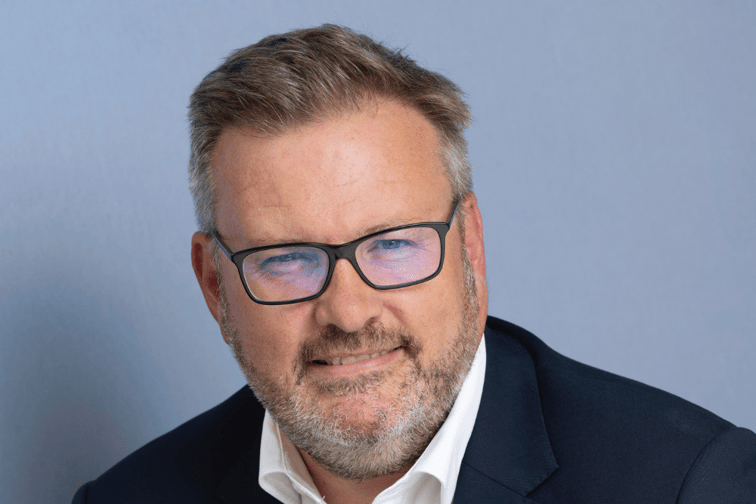

“The MGA market is nicely positioned for growth. We’ve seen some great interest and support from insurers, reinsurers and investors, and the market continues to be buoyant. The art of the possible is quite immense right now.”
In conversation with Insurance Business, Pro MGA Solutions CEO and long-time proponent of the MGA market, Danny Maleary (pictured) shared what’s shaping discussions on where the MGA sector stands heading into 2024. It’s a topic of conversation dominating the agenda for him and his team as six years into their journey, they look to their next three-year plan. It’s a real reflection point for the business, he said, as well as an opportunity to explore what’s next on the growth agenda.
With 32 clients and 43 MGAs currently under management, Pro MGA Solutions supports 29 classes of business across multiple territories, he said, and is targeting 60% year-on-year growth for FY 2023. Maleary added that he’s delighted to announce that the firm has reached the US$1 billion GWP under management mark and is now poised for significant territorial expansion beyond the UK, Europe and the US, with its sights set on LatAm (through Mexico) and Asia (through Singapore).
“It’s all about growth for us right now, which is why we’re reflecting on 2023 as we look into 2024 in terms of our relationships and partnerships – the good, the bad and the indifferent,” he said. “We’re looking at what we should tweak and what we shouldn’t. And we’re having those conversations around strategic partnerships and tactical partnerships, about how we grow and where we grow in 2024 – and what that means for us, our clients and our partners.”
With Pro MGA Solutions seeing circa seven-to-10 new MGA opportunities a month, Maleary is well placed to take the temperature of the market. What’s been interesting to see, he said, is that the business’s declinature rates have decreased from about 80% to about 62% which reflects that the quality of MGA and business plan that he’s now seeing is much higher than it has been historically.
In the past, Maleary has hailed MGAs as a “crucible for innovation” and that still stands true today, though he has seen a slight slowdown in the market when it comes to insurtech opportunities. Generally speaking, he said, the quality of MGAs from a technology perspective continues to be very strong, and what’s been great to see is that, for the first time, technology MGAs are starting to come together to create hybrid tech stacks. This kind of collaboration just didn’t happen before, so it’s great to see the market taking such a grown-up approach.
Looking at the MGA market in Europe, he noted that insurance brokers are helping to drive the demand for innovative products that look to support their clients’ growth agendas. It’s also interesting to see how the MGA sector in Europe is taking up that mantle and helping to shape that innovation and technology-led approach to enabling the creation of products and services that better align with clients’ needs.
Of course, each territory is different and so has different requirements, he said, which is why his team places such a premium on having the agility and nimbleness necessary to cater to such a wide range of clients. Zeroing in on the UK, he emphasised the opportunities presented by embedded insurance as high-profile brands are increasingly looking to offer an embedded insurance proposition to their customers.
“They’re really looking to create an ecosystem where their clients can become ‘stickier’ than they currently are,” he said. “They’re keen to really listen to what their clients want and expect from them. For example, when I’m buying a watch or an e-bike, if I could be insuring that product at the same time that I’m buying it via a simple QR code scan because I know that insurance proposition is embedded in the price then, as a customer, that just simplifies my purchase.
“For individuals, insurance is still seen as a necessary evil so anything that can be done to simplify how they buy it – as long as we’re extremely transparent from a product perspective and a combat risk perspective – then the happier customers will be. And I’m seeing a lot of movement in that space.”
Assessing the long-term viability of the MGA model, Maleary attested that “MGAs are here to stay.” The model has proven itself time and time again as a primary source of new and innovative propositions to insurers, he said, which will continue as long as MGAs are structured and positioned correctly. There’s still plenty of work to be done in the space and within individual entities to ensure they remain fit for purpose, he said, but it’s the ever-changing nature of the market that makes it so interesting.
“You just have to continually refresh and reflect and move on,” he said. “That’s the only way to ensure you stay ahead of what the market’s looking for and that you get a real feel for where it goes next. MGAs are very good at that which is why they’ve been embraced for the last five or so years and why I feel they’ll continue to be embraced going forward.”
